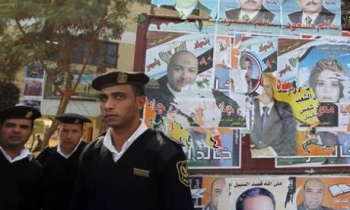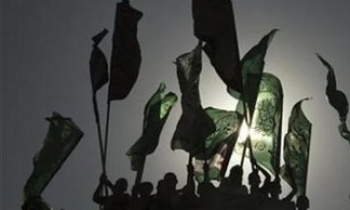A former Voice of America (VOA) journalist and four soldiers have been convicted of state security crimes in Angola and sentenced to 12 years in prison in a trial that, Human Rights Watch (HRS) says, fell far short of internaitonal fair trial standards.
On September 16, 2008, a military court in the Angolan enclave of Cabinda convicted former VOA journalist, Fernando Lelo, and four soldiers of state security crimes and sentenced them to 12 years in prison, HRW has revealed in a new report on unfair trials in the southern African country.
Since September 2007, the Angolan armed forces have arbitrarily detained at least 15 civilians and six military personnel in Cabinda, the oil-rich province that has long had a separatist insurgency. All were eventually charged with "crimes against the security of the state," accused of assisting the armed separatist Front for the Liberation of the Enclave in Cabinda (FLEC). So far, there has been one trial.
"The unfair trial of Fernando Lelo and four soldiers has set a disturbing precedent," said Georgette Gagnon, Africa director at HRW. "Angola should exonerate and free them, and make sure that future national security trials meet international standards."
Most of those detained in Cabinda were held in an unofficial military detention centre, where, HRW research found, they were tortured and held in inhumane conditions for months before being transferred to a civilian prison. Most spent far more than the 90 days allowed by Angolan law before being charged with any offense.
As a journalist, Lelo had regularly criticised the government for arbitrary arrests and other human rights abuses, and had been briefly detained after covering a police crackdown on church members in 2006. He was arrested in November 2007 and accused of having paid the six soldiers in July 2007 to carry out acts of sabotage.
Defence lawyers and other observers in Cabinda told HRW that the trial, which ended in June, produced no evidence to support the accusations. They said the military judge refused to take into account testimony demonstrating that Lelo was at work when a meeting with the soldiers allegedly took place, and that no evidence was produced that the military personnel even knew him.
The court systematically disregarded defence evidence, and the state press reported only the prosecution's position. Prior to the trial, on January 7, Attorney-General João Maria de Sousa stated there were "strong indications" Lelo was guilty, which raises further concerns about fairness.
Under Angolan law, civilians should be tried by a civilian court. The UN Human Rights Committee—the body authorized to interpret and monitor compliance with the International Covenant on Civil and Political Rights (ICCPR)—has stated that the trial of civilians by military courts should be very exceptional and occur only under conditions that genuinely afford full due process.
Human rights activists in Cabinda told HRW they believed the government delayed announcing Lelo's sentence until after the September parliamentary elections, to avoid popular unrest and damage to the ruling MPLA party's political chances in Cabinda. In the September trial, one soldier was acquitted, while another had been unconditionally released beforehand. Lelo and the other convicted men have appealed their sentences. The 14 other civilians remain in custody without trial.









